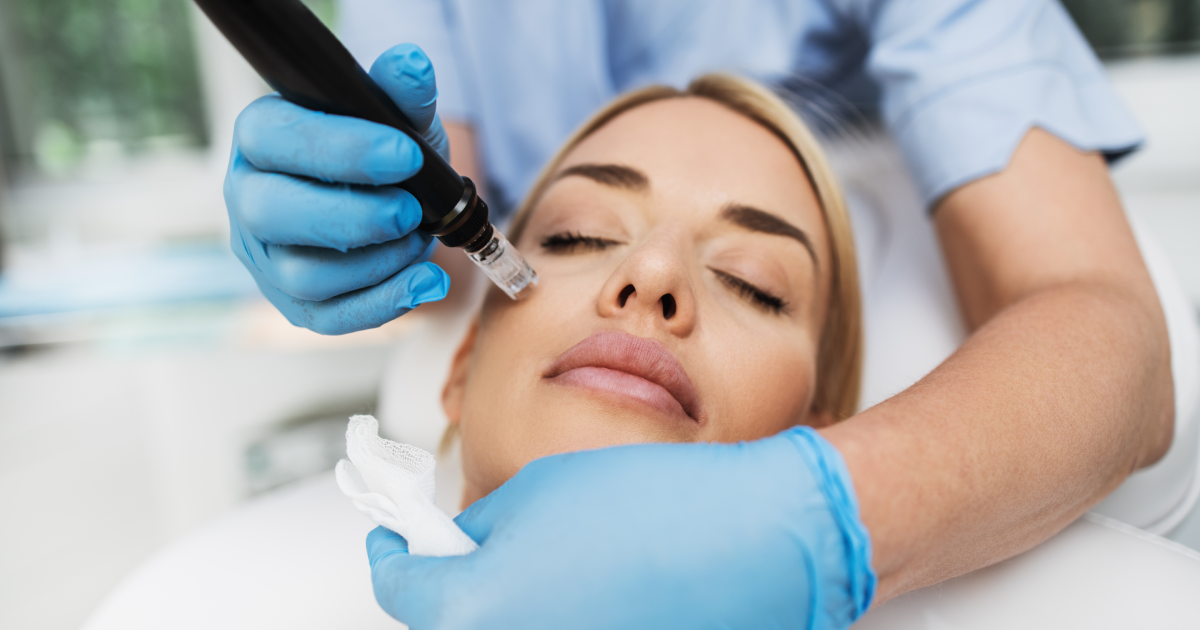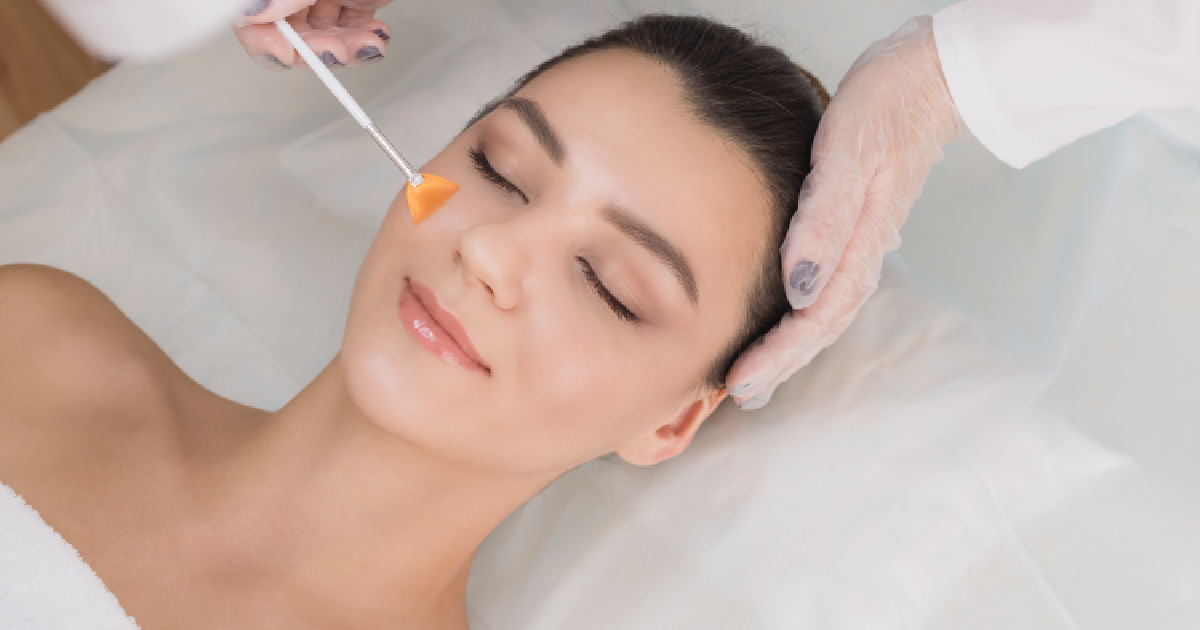Table of Contents
As more people search for potent remedies for their skin issues, chemical peels have rapidly gained traction. These treatments vow to combat everything from wrinkles to dark spots. However, given the numerous skincare alternatives, it’s crucial to discern chemical peels’ real benefits and suitability for various skin types. Ageless Medical and Lasers is a guiding light for those seeking a distinctive wellness journey. This article explores the particular skin challenges that chemical peels address and assesses their performance on different skin shades and conditions.
Understanding Chemical Peels: A Comprehensive Guide
Chemical peels have become a staple in many skincare routines, promising rejuvenated and radiant skin. But what exactly are they, and how do they work? Let’s break it down:
- What Are Chemical Peels? Chemical peels remove the skin’s top layers, promoting smoother, less wrinkled new skin growth.
- The Science Behind Them: The solution exfoliates and peels the skin, revealing smoother, undamaged skin.
- Types of Chemical Peels:
- Superficial Peels: Use mild acids like alpha-hydroxy acid. They gently exfoliate the skin’s outer layer.
- Medium Peels: Employ trichloroacetic or glycolic acid to penetrate the middle layers of the skin. They can correct age spots, fine lines, and even freckles.
- Deep Peels: Use phenol to penetrate the skin’s middle layer. They target more severe wrinkles, sun damage, and scars.
4. How Often Can You Get Them? Superficial peels are gentle enough for monthly sessions. Medium peels require a few months between treatments to allow for full recovery. Deep peels are more intense and may only be performed once for optimal results.
5. Immediate After-effects: Depending on the type of peel, you might experience redness, scaling, and swelling. These effects typically subside within a week.
6. Post-Peel Care: It’s essential always to wear sunscreen and moisturize regularly to keep new skin hydrated. Additionally, avoid picking or pulling at the skin to prevent scarring.
7. Who Should Consider Chemical Peels? Chemical peels can benefit sun-damaged, scarred, or lined skin. Consult an esthetician for suitability.
Skin Concerns Addressed by Chemical Peels: A Detailed Look
Chemical peels have garnered attention for their transformative effects on various skin issues. But what specific concerns can they tackle? Let’s dive in:
- Fine Lines and Wrinkles: Chemical peels stimulate collagen production and accelerate cell turnover. They smooth out fine lines, especially around the eyes and mouth, giving the skin a youthful appearance.
- Acne and Acne Scars: By exfoliating the skin’s surface, chemical peels unclog pores and reduce acne. They also fade post-acne marks and scars, creating a clearer complexion.
- Hyperpigmentation and Uneven Skin Tone: Chemical peels target melanin, the pigment responsible for dark spots. They lighten areas of hyperpigmentation, resulting in a more even skin tone.
- Sun Damage and Freckles: The sun’s harmful UV rays can cause premature aging and discoloration. Chemical peels reverse sun-induced skin changes, reducing the appearance of sunspots and freckles.
- Rough Texture and Dullness: By removing the outermost layer of dead skin cells, chemical peels reveal a brighter, more radiant complexion. They also improve skin texture, making it feel smoother and softer.
- Enlarged Pores: Chemical peels tighten the skin and minimize the appearance of large pores. Regular treatments can produce a refined skin texture with less visible pores.
- Melasma: Facial patches, often brown or gray-brown due to hormonal changes, can be reduced with chemical peels and other treatments.
- Actinic Keratosis: This precancerous skin condition appears as rough, scaly patches. Some chemical peels can help treat actinic keratosis, reducing the risk of developing skin cancer.
Factors Influencing the Effectiveness of Chemical Peels: What You Need to Know
Chemical peels can work wonders on the skin, but their effectiveness isn’t solely based on the treatment. Several factors play a role in determining the outcome. Let’s explore these crucial elements:
- Skin Preparation: Pre-treatment care, such as retinoids or glycolic acid, can prime the skin for a chemical peel. Properly prepped skin often responds better to the treatment, ensuring more even results.
- Type of Peel Chosen: The depth of the peel (superficial, medium, or deep) must match the skin concern being addressed. For instance, deep-set wrinkles might require a deeper peel, while a superficial peel might suffice for mild discoloration.
- Skin Type: Everyone’s skin is unique. Some skin types react more favorably to specific chemical solutions than others. It’s essential to choose a peel formulation that’s compatible with your skin type for optimal results.
- Post-Peel Care: How you care for your skin after the treatment significantly impacts the results. Regular moisturizing, avoiding sun exposure, and refraining from picking at peeling skin can enhance and prolong the effects of the peel.
- Frequency of Treatments: Some skin concerns might require multiple sessions to achieve the desired results. Following a dermatologist’s recommendation on the frequency of treatments can ensure you get the most out of each session.
- Professional Expertise: The skill and experience of the professional administering the peel play a pivotal role. A knowledgeable dermatologist or skincare specialist can tailor the treatment to your needs, ensuring safety and effectiveness.
- External Factors: Sun exposure, smoking, and certain medications can influence skin response to a chemical peel. Knowing and discussing these factors with your skincare professional can help achieve the best outcome.
- Patient’s Expectations: Setting realistic expectations is vital. While chemical peels can be transformative, they might not always provide “perfect” skin. Open communication with your dermatologist about what you hope to achieve can yield more satisfactory results.
Consult a Professional
While chemical peels are potent treatments, their effectiveness hinges on various factors. If you’re considering a chemical peel or seeking advice on any skincare concern, don’t hesitate. Consulting with a professional esthetician will provide clarity and guide individuals toward the best treatment option.
Takeaway
In the ever-evolving world of skincare, chemical peels are a potent solution to many skin concerns. Their effectiveness, influenced by various factors, can be maximized with the proper guidance and expertise. At AgeLess Medical and Lasers, we’re committed to providing tailored treatments that cater to your unique needs, ensuring optimal results. Are you considering a chemical peel or seeking advice on any skincare concerns? Don’t hesitate. Your journey to radiant, rejuvenated skin is just a step away. Contact us today or book an appointment to unlock the best version of your skin.







